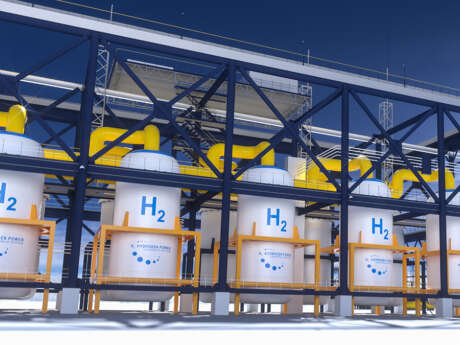Our involvement
We are pleased to be participating at this year’s International Conference on Hydrogen Safety (ICHS) taking place September 19th – 21st at the Québec City Convention Centre, Canada.
Gexcon will be represented by expert speakers from our team who will deliver presentations on the use of consequence modelling tools to support hydrogen safety studies.
Principal Research Scientist Andreas Mack will deliver an insightful presentation entitled ”Modelling of Hydrogen Dispersion with EFFECTS”, whilst Research Engineer Melodía Lucas Pérez will share her expertise in a presentation entitled ’’Experiments and Simulations of Large Scale Hydrogen-Nitrogen-Air Gas Explosions for Nuclear and Hydrogen Safety Applications”.
Presentations
Presentation 1
Title: Experiments and Simulations of Large-Scale Hydrogen-Nitrogen-Air Gas Explosions for Nuclear and Hydrogen Safety Applications
Author: Melodía Lucas Pérez, Nicolas Salaün, Gordon Atanga
Presenter: Melodía Lucas Pérez
Session: Deflagrations / Dispersions
Location: Hall 309A
Date & Time: Wednesday, September 20, 2023 at 15:20 – 15:40 PM EDT (-5 BST)
Abstract: Hydrogen safety is a general concern because of its high reactivity compared to hydrocarbon-based fuels. The strength of knowledge in risk assessments related to the physical phenomena and the ability of models to predict the consequence of accidental releases is a key aspect of the safe implementation of new technologies. Nuclear safety considers the possibility of accidental leakages of hydrogen gas and subsequent explosion events in risk analysis. In many configurations, the considered gaseous streams involve a large fraction of nitrogen gas mixed with hydrogen.
This work presents the results of a large-scale explosion experimental campaign for hydrogen-nitrogen-air mixtures. The experiments were performed in a 50 m3 vessel at Gexcon’s test site in Bergen, Norway. The nitrogen fraction, the equivalence ratio and the congestion level were investigated. The experiments are simulated in the FLACS software to inform about the current level of conservatism of the predictions for engineering application purposes.
The study shows the reduced overpressure with nitrogen added to hydrogen mixtures and supports the use of FLACS-based risk analysis for hydrogen-nitrogen scenarios.
Presentation 2
Title: Modelling of Hydrogen Dispersion with EFFECTS
Author: Andreas Mack, Hans Boot
Presenter: Andreas Mack
Session: Detonations / Explosions
Location: Hall 308B
Date & Time: Thursday, September 21, 2023 at 09:10 – 09:30 AM EDT (-5 BST)
Abstract: The paper shows the latest developments of Gexcon’s consequence modelling software EFFECTS with validation based on hydrogen experimental data for different storage conditions and scenarios, including liquid hydrogen two-phase jet releases. The effect of atmospheric turbulence on the dispersion and potential worst-case scenarios of hydrogen which are very different from heavy gas releases are discussed. Besides validation for gaseous hydrogen releases, a validation study for pressurised liquid hydrogen jet releases including a sensitivity analysis is performed and the results are compared with experimental data.
About the event
The 10th International Conference on Hydrogen Safety (ICHS 2023) will be held at the Québec City Convention Centre (located at 1000, boul. René-Lévesque Est, Québec (Québec) Canada G1R 5T8) in Québec City, Québec, Canada, under the auspices of the International Association for Hydrogen Safety (IA HySafe).
Hydrogen is now beginning to play a greater role in the transition to clean, safe and sustainable energy systems. ICHS2023 will address industrial heat and feedstocks, commercial and domestic heat, energy storage & energy transportation, and decarbonised clean transport throughout regions and across continents.
The overarching theme for ICHS2023 will address a wide range of hydrogen safety topics including safety of large production and supply chain infrastructure, hydrogen and hydrogen carrier behaviours, physical effects, consequence and risk analysis, incidents, accidents and near misses, hydrogen effects on materials and components, safety of energy storage, power to gas/gas to power related safety issues, safety solutions for the implementation of hydrogen technologies, risk management, best practices, regulations, codes and standards, as well as communication strategies for wider public awareness and acceptance of hydrogen.






































































































































